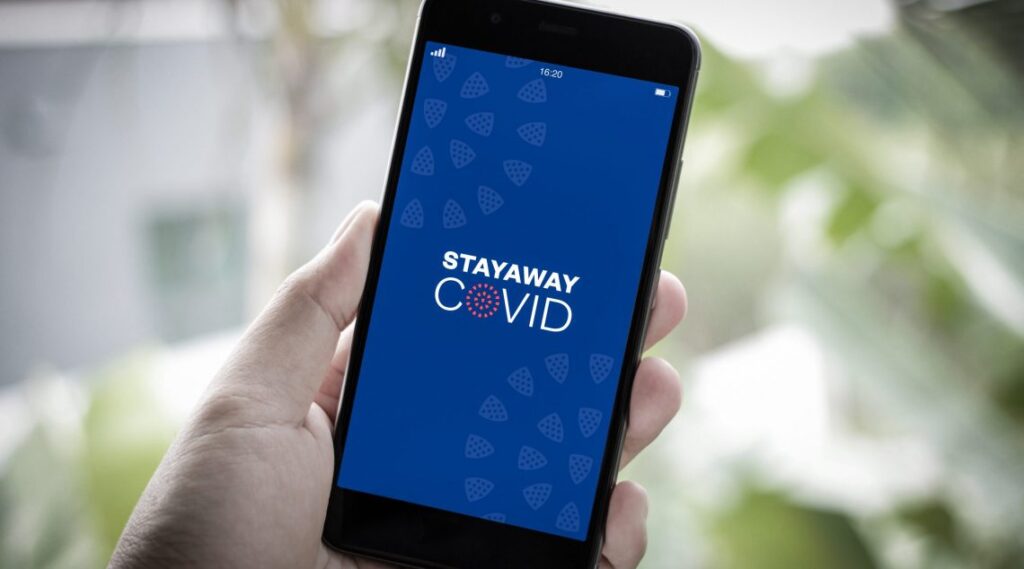Across Europe, they have been implementing apps COVID-19 screening. Some countries (eg Germany; Italy) are already even participating in EU-initiated infrastructure tests to operationalize a interoperability gateway service.
The goal will be something like the interactive communication of apps between countries, that is, a secure exchange of information between backends, in hopes of complementing or enhancing some measures (eg increased testing). At the same time, certainly, for those traveling in Europe to avoid being forced to do download of different apps.
However, several personalities in the scientific context have alerted to the need for a transparent debate that explains in a simple way what are the greatest challenges of these apps from an ethical point of view, from a legal point of view and from a technical point of view.
Luciano Floridi, professor in the field of Philosophy and Ethics of Information and director of the Digital Ethics Laboratory at Oxford University, wrote an article that begins as follows: “App coronavirus devono essere etiche o è meglio rinare” (Coronavirus applications must be ethical or better give up)!
In Portugal, it was also recently launched a app StayAway COVID developed by INESC TEC and promoted by the Directorate-General for Health), with a view to quickly responding to current challenges.
However, the fact that app StayAway COVID be voluntary, anonymous and secure, complying, from the outset, with all requirements of the General Regulation on Data Protection 2016/679 (RGPD) and following the Guidance Guide on applications to support the fight against the COVID 19 pandemic against data protection 2020/C 124 I/01, still seems not to be enough to win public trust. How can we understand this hesitation?
In interview with Jornal Eco, on September 21, with Rui Oliveira (administrator of INESC TEC), reads: “About three weeks after the launch, the Portuguese tracking application StayAway Covid has already surpassed one million downloads. The number is almost 10% of the population of Portugal, but represents more than 15% of the 6,5 million Portuguese that INESC TEC estimates have a mobile phone capable of running the app”.
From the outset, it is important to emphasize the difference between doing the download and effectively using the application, as well as it is important to make it clear that having a mobile phone capable of running the application and having basic digital skills are aspects that are not confused and need different communication measures to verify the desired effectiveness.
Do privacy issues also cease to arise? No. And can privacy issues be less urgent at the expense of the context itself? It depends.
If the effectiveness of the application will depend on x % of the Portuguese population do the download and use the application, it would be important to follow the challenges of Index of Digitality of Economy and Society (IDES). In the report of 2018 and which remains in the year 2019, it can be read: “Half of the Portuguese population does not have the basic digital skills necessary to use the Internet effectively and 30% do not have any digital skills (mainly because they do not use the Internet or only do so rarely)”.
So, maybe it would be a good opportunity to promote digital literacy in Portugal, to talk about municipal plans for digital inclusion. We run into the risk of encouraging the use of an application for which there has not been enough time to think about the policy / protocol of use in its broadest sense.
An application is always part of a larger strategy, but you also need to be mindful of the danger of a false sense of security. Just ask the right questions: What is the percentage of use by geographic area? If we are talking about centralized focuses of people/users, does the benefit fall more on the individual good or on the common good?
The hesitation in the face of the Stay Away COVID application takes on many faces, many doubts of different orders and the validity of something is never confused with its effectiveness.
In terms of public health and communication in health, this application should enhance some measures, but never replace their efficiency and the argument of the common good and social responsibility can never validate the dismissal of government responsibility in the exercise of transparency.
Maybe it's a good time to adapt the old maxim: “go big or go man" for go big or stay home, stay safe.
Author: Read Raquel Neves
© 2020 – Science in the Regional Press / Ciência Viva




















Comments